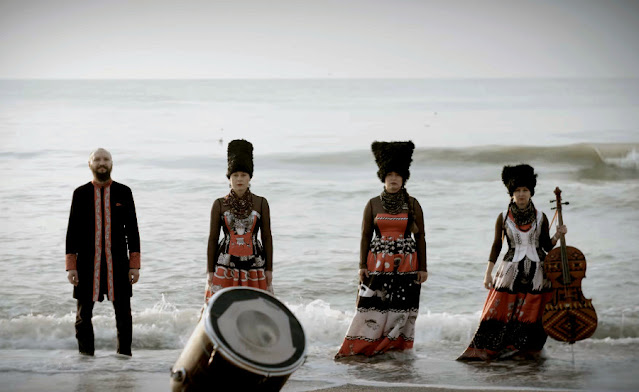Why Shouldn't verified ID be a requirement for opening a social media account.
The issue surrounding online safety has become ever more prevalent within the media over the past decade. Perhaps one of the most important issues discussed is surrounding that of online harassment and how to combat it. Many people are harassed online daily by negative comments, these comments range from rude to illegal. Some comments attack the individuals personality, whilst others can be seen as wrong in the eyes of the law due to such comments exhibiting bigotry (racism, homophobia etc.) or being a direct threat on someones life. This is without even mentioning targeted harassment which in the past has led to suicides, especially in young teens. As such over the past few years there has been a greater urgency to find solutions to the harassment those face online with a clear target being that of the anonymous accounts which spread hate across websites such as twitter and instagram. Whilst police can often intercept on sites like facebook, due to most having personal details on public display, this is almost impossible on sites where anonymity is vastly used. Therefore a solution was put forward which gained a lot of traction in the summer of 2021 but was also mentioned again on the news this week by an influencer to combat harassment and other issues we face online, like spam accounts or underage users. That solution is to use a system in which in order to sign up for social media one must present a form of ID which will be linked to their account.
On the surface this may seem like an enticing idea. Indeed, with a photo identification linked to every social media account it would deter a lot of people engaging in harassment online. This is because if the negative comments received were bad enough and were unlawful, by being clearly racist for example, or by constituting repeated harassment then one could be contacted and even arrested by the police. This would remove the anonymity from the accounts which would displace peoples confidence in being able to harass others without any form of punishment. Thus deterring harassment as much as it is deterred in our general every day lives. Indeed, it would greatly improve the general safety of the online sphere.
However whilst this may look like a good idea on the surface it may actually cause greater harm than anonymous harassment in the long run. On a basic level by requiring ID to use social media one gatekeeps social media from a great number of the population who simply cannot afford to purchase a verified ID. This will obviously have a negative impact as it would directly widen the class divide by preventing the poorest of population from that which is now considered essential for many. This would not only exhibit a form of discrimination in itself by disallowing the poor from using what was once a free site, it may also widen the class divide by preventing some from finding job opportunities on social media, as many job are advertised there alone.
Yet, the more pressing issue comes with the lack of privacy this ID system would impose upon the average social media issue. By being forced to hand over your ID you hand over any form of privacy you may have online and are put at risk because of it. Of course, social media already has algorithms which can gain information about your interests through what you post and if you have a social media account like facebook, with your name, photo and city of origin, handing over you ID may seem inconsequential. However, by enforcing everyone to give up anonymity puts those who have a more pressing reason for staying anonymous in danger. For example, lgbt+ teenagers who are in a homophobic or transphobic household may create an anonymous account on twitter to talk about being lgbt with online friends and express general struggles to find support. If an ID is required to set up said twitter account these teens are put in danger. Either they set up the account and are put at risk of their account being traced back to them which could then lead to abuse or abandonment by family members, alternatively if they decide against making an account for such a reason it could lead to them not being able to find a support system which may result in mental health issues and in some cases suicide. Another issue is that whistleblowers often create anonymous online accounts to report abuse or misconduct in workplaces and sometimes even governments, they may do such through a device that cannot even be traced to them. Yet, by having ID on such accounts they would either be traced and unfairly jailed or fired or they would be unable to whistleblow at all, producing a great ordeal of harm to the victims of those they are trying to whistleblow on. Indeed, anonymous accounts are needed not simply for our general right to privacy, but to allow privacy when it is absolutely needed to keep said person or others safe in their own regard.
Additionally, It sets a new danger not simply to those who wish to remain anonymous for a reason but for everyone using the social media site. First, there would be a high possibility that the social media site could get hacked. Indeed, it is often the case that we receive advice to change our passwords because our account or the site in general has been compromised. If an ID is linked to our account not only would the hacker gain access to use our account for their own purposes but to the use our ID for their own purposes which could lead to any type of identity fraud available. Thus, this ID requirement presents a danger to us all because a hacker by presenting a photocopy of our ID to any organisation could take out a loan on our behalf, for example. Perhaps even more worrying is the notion that these corporations have our ID's to do with what the please. Of course this may be against their Terms of Service, to use your ID for anything but stored data, yet conceivably with how much power certain social media site owners currently have there may come a time in which they decide using your ID for another service may be more beneficial than maintaining the terms and services, and given the CEOS wealth and sway there maybe little we can do to stop this. Furthermore, the ID linked to your account would make it far easier for one to be tracked down if you spoke out against a more totalitarian government. Indeed there have already been cases where police in the US have been able to arrest a protestor due to a comment on an ETSY page. The ability to access a form of official (irrefutable) identification on an account that is speaking out against the government would allow the police or the government to arrest those who they want to silence far easier. This would prevent perhaps any freedom of speech against any form of corrupt government and the gathering of groups in protest, as many would fear being arrested on the chance that they have said something the government dislikes. Indeed, In certain circumstances this identification system on social media could bring forward a form of thoughtcrime like seen in 1984. Of course much mentioned here is only possible scenarios and may not happen but they are very real worries for which we should hold great concern. As such it does not seem that the immediate issues surrounding online harassment should be solved by verified ID as our general right to privacy and the dangers that can result from online verification are far too great a risk.





Comments
Post a Comment